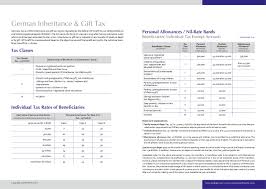A Comprehensive Guide to Inheritance Tax in the UK

Introduction to Inheritance Tax
Inheritance tax (IHT) is a significant consideration for individuals in the UK, affecting the value of estates passed down to heirs after an individual’s death. As property values and wealth have risen, the implications of inheritance tax have become more relevant. In 2023, families across the UK are increasingly aware of how IHT can impact their financial planning and the legacies they leave behind.
Current Inheritance Tax Rates and Thresholds
As of March 2023, the inheritance tax threshold, also referred to as the nil-rate band, remains at £325,000. This means that estates valued below this amount are not subject to IHT. However, estates exceeding this threshold are taxed at a rate of 40% on the value over £325,000. Recent governmental proposals aim to review the thresholds, which have not changed since 2009, sparking debates about potential reforms to address inflation and rising property values.
The Impact of Recent Legislative Changes
The introduction of the residence nil-rate band (RNRB) in April 2017 has also influenced how inheritance tax is calculated for families. The RNRB allows an additional tax-free allowance when passing a main residence to direct descendants, increasing the threshold for some estates. Currently, the RNRB is £175,000, but it is essential to note that this is gradually being phased out for estates valued over £2 million.
Planning for Inheritance Tax
Given its substantial implications, effective inheritance tax planning is paramount for individuals looking to minimise their tax liabilities. Options include gifting assets before death, setting up trusts, and making use of various reliefs available under UK tax law. For example, certain charitable donations can reduce the overall estate value for tax purposes. Financial advisors emphasise the importance of early and strategic financial planning to ensure that families preserve their wealth for future generations.
Conclusion: Looking Ahead
In conclusion, inheritance tax remains a critical component of the UK’s taxation system, with direct implications for estate planning. With ongoing discussions about potential reforms and the impact of economic changes, it is advisable for individuals to stay informed and seek professional advice to navigate the complexities of inheritance tax effectively. Understanding the rules and potential changes can help families secure their legacies and minimise tax burdens.
